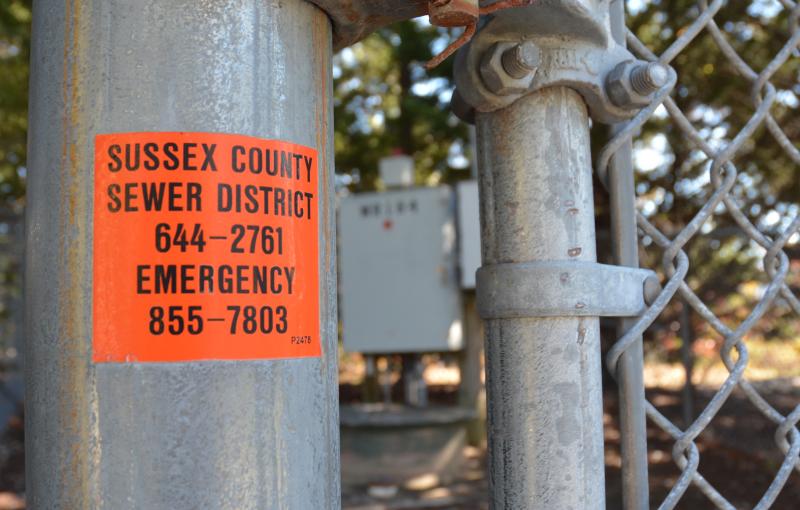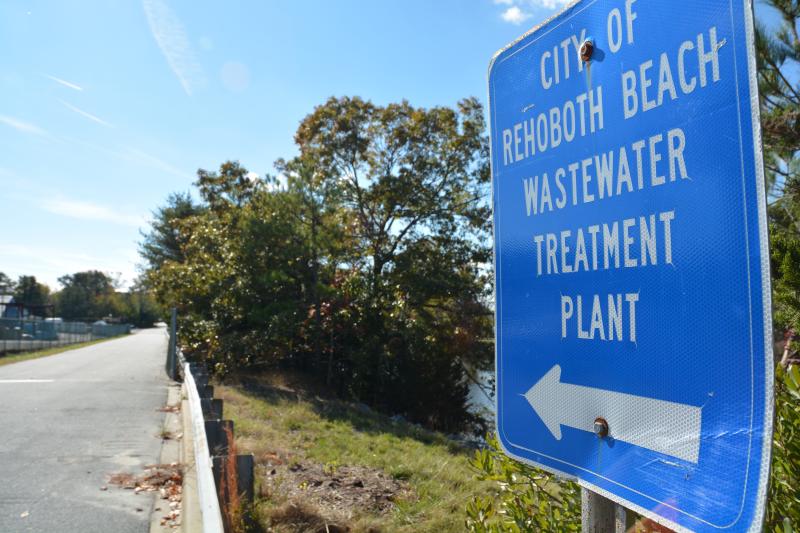County offers Rehoboth $20M for outfall connection
Officials from Sussex County and the Lewes Board of Public Works resumed discussions with Rehoboth Beach commissioners about hooking the county’s Wolfe Neck Regional Wastewater Facility into the city’s ocean outfall pipe. This time around, the county came prepared with an initial offer – a one-time payment of $20 million and the funding of testing, any outfall modification expenses and all future operations and maintenance.
County and BPW officials first approached Rehoboth in July about the creation of a regional wastewater partnership. Lewes needs a new wastewater treatment facility, and after years of analysis, a consensus was reached that the best plan moving forward would be for the county to expand its Wolfe Neck facility.
Officials from all three agencies were face to face again Sept. 9, during a Rehoboth commissioner workshop. Sussex County Administrator Todd Lawson and former County Engineer Hans Medlarz, who is still helping the county on a few projects, did a majority of the talking for the county. Lewes BPW President Tom Panetta spoke on behalf of the BPW.
Lawson said that in return for the offer of $20 million and future maintenance costs, the county would like the ability to pump up to 5 million gallons per day through the outfall.
According to Lawson, the combined annual flow for Lewes and the county at the Wolfe Neck plant would be estimated to be 2.7 million gallons per day. He said the flow would increase over time, but they don’t expect to reach the gallon-per-day maximum until at least 2050.
Sussex County Finance Director Gina Jennings explained how the county reached its $20 million offer.
“Any number we come up with has meat behind it,” said Jennings. “We’re not just throwing out numbers.”
In late 2021, the county approached the city about hooking into the outfall. At the time, the county offered $7.6 million for permission to add up to 2 million gallons. In the end, city officials declined the offer because they were opposed to the county purchasing that connection, instead of a long-term lease.
Jennings said the county has taken that offer – $3.8 million per 1 million gallons – from before and multiplied it by five, which gets to $19 million. The $20 million offer is the most the county can give, so the county decided to throw the biggest number out there, she said.
During the 2021 offering, a city consultant said the manufacturer’s recommendation for the maximum outflow amount would be in the range of 10 million to 12 million gallons per day.
Mayor Stan Mills said he views the $20 million as a minimum. “But I’m an optimist,” he said.
There was talk about the length of the contract, which would mirror the agreement the county currently has in place with Rehoboth for using a percentage of the treatment capacity at the city’s wastewater treatment facility. The proposed length would be for 25 years, ending Aug. 8, 2042, with a 25-year renewal option.
However, Panetta said, once a switch is made, Lewes would be out of the wastewater business, so it would need to be clear the agreement actually goes in perpetuity.
The county has proposed a treatment process that’s essentially identical to the process currently used at its South Coastal plant and the one currently used by Rehoboth.
Medlarz said the county would tie in near the newly reconstructed State Road pump station through public rights of way from the Wolfe Neck facility. It’s a fairly easy process and there would be no disruption to city users, he said.
Best-case scenario, Lawson said, construction would be completed by 2030. It’s difficult to know exactly when, though, because of how long the permitting process takes, he said.
Given the unknowns for the permitting process, Lewes officials and the county have expressed a desire for the city to make a decision by the end of the year.
Commissioner Don Preston said there is still a way to go before he’s comfortable making a decision. It’s tough to know if $20 million is a lot or a little, he said. That said, he continued, when he hears perpetuity, it sounds like a little.
The public continued to express hesitancy.
Former Commissioner Jay Lagree said he wanted to see better technology used for the treatment process.
Former Mayor Sam Cooper said there needs to be clarity on the agreement and a better explanation for why Lewes needs to be involved since it’s Sussex County that will be operating the facility.
In the end, other than city officials agreeing to continue discussions, no decisions were made. The expectation is that county and BPW officials will be back before city commissioners at the Monday, Oct. 7 workshop.





















































